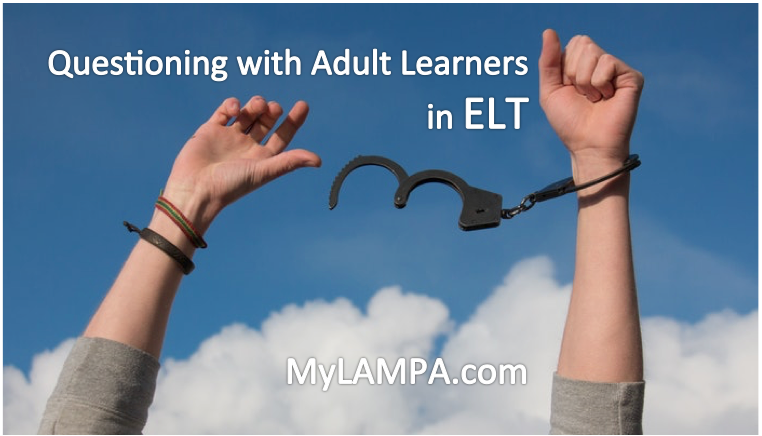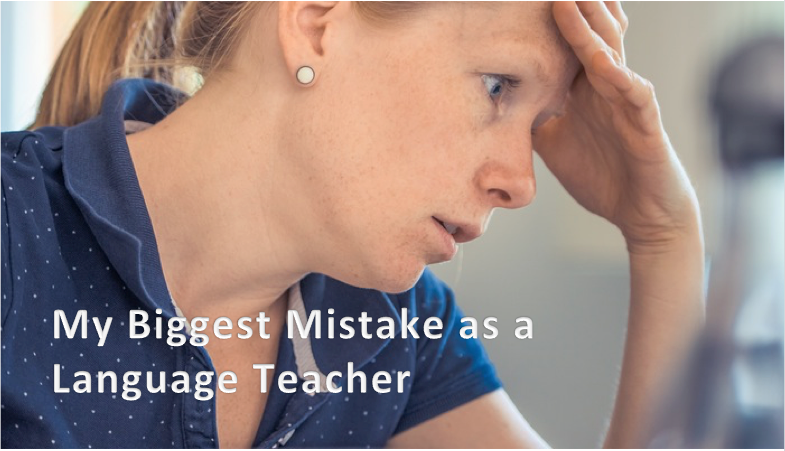Communication versus Correctness in the EFL Classroom

Mistakes in Our Own Language
As natives speakers, we all have did mistakes in our own language when we discuss about stuff. This is normal – our tongues sometimes move more quickly than our brains can put thoughts together. I make mistakes all the time when I am speaking English, and I am sure that if we ask our learners which of them has never made a mistake in their own mother tongue, very few hands will go up.
I remember going home to southwestern Nova Scotia in Canada for a visit one summer. On the second or third evening home, I went to the local pub to meet up with a group of old friends. We were sitting around over a couple of beers enjoying a lovely summer evening looking out over the harbour, chatting, having a few laughs and catching up when I overheard one of my close friends, who is a secondary school principal and a former EFL teacher, say, “No, I haven’t went there yet.”
Immediately, my ears perked up and I bleated out, “Brian! You haven’t GONE there yet!”
He calmly turned to me with a grin on his face from ear to ear and replied, ‘Steve, … #!&@ *##.’
I’m not saying that we shouldn’t correct participle mistakes when learners make them, but a normal person, i.e. almost any native speaker who is NOT an English language teacher, would not have corrected Brian’s regional slant on the past participle of ‘go’.
When to Correct
Correcting mistakes and the decision to interrupt learners when they are communicating should be based on a conscious assessment of the mistake. Although some adult learners ask to have their all mistakes corrected, I usually reply with, “Well, I’m not so sure that’s such a great idea.” In addition to the fact that some people hate being interrupted while others think that to be corrected is the reason they are taking the course, as an EFL teacher, I believe I am there to facilitate communication rather than hinder it.
So what criteria do we use to decide what kinds of mistakes need correcting and how do we correct with minimal interference in the communication?
At the beginning of every course, I think it is useful for teachers to explain the criteria we use for making corrections, how we intend to correct and our reasoning for doing things in this way – this is especially true with adult learners.
In my own courses, I consciously try to break mistakes down into four categories:
- minor mistakes typically made when speaking faster than the brain is thinking;
- mistakes made repeatedly or when the learner should know better;
- utterances which I think that a normal English speaker on the street might not understand;
- and mistakes made when the learner is completely in over his/her head and seems to be sinking in a quagmire of complicated vocabulary or grammar.
How to Correct
Generally, I try not to correct the minor mistakes unless I hear them again and again. That’s when they move into the second category. In the case of repeated mistakes, rather than letting the error fossilize, I softly but audibly repeat the word or phrase correctly so the leaner has the option of either going back to repeat the utterance correctly or making a mental note of the correction and continuing with the discourse. This approach seems to satisfy both those who like being corrected and those who don’t like being interrupted.
Correcting the utterances that we suspect a native English speaker on the street would have difficulty with requires an interruption, usually saying something to the effect of, ‘Uh, sorry, Marie, I don’t think I quite know what you mean… Could you say that again?’ The problem here is that the longer we teach learners of the same mother tongue, the more calloused we become to the type of mistakes they often make – we’ve heard it so often that we know what they mean without clarification and we tend to forget that other native speakers might not understand. For instance, as an EFL teacher in the Czech Republic, I have been asked hundreds of times, “How long are you here?” But since I have a knowledge of Czech, I know that the person means, “How long have you been here?” A native speaker with no knowledge of Czech or the context might think the question, “How long are you here?” means, “When are you leaving?” So, although I probably should ask for clarification in the classroom in this case, I might let it go since I understand what they are saying perfectly well in spite of the fact that the native speaker on the street might not have the foggiest idea what the heck the learner is going on about.
Finally, there are situations when the learner is completely lost. This happens with diminishing frequency as the learner advances. When the learner seems to be drowning in an unfamiliar ocean of complicated language, I think it is best to resist the temptation to jump in for as long as humanly possible and wait to see if he/she figures out how to swim. Learning to survive on limited language is an extremely important skill to learn. There is always more than one way of making a point, albeit a native speaker might be able to use five words to articulate an idea that a pre-intermediate-level learner may need 50 words to say.
The ability to think laterally to get around difficult language is one that needs to be developed and ‘practice makes perfect’, as they say. In such situations, the problem can be noted by the teacher and then we can decide whether it is prudent to teach the language the learners lack later in the lesson, to teach it next lesson, or to let it go completely knowing that it is something not essential at the moment and that it will be dealt with further along in the curriculum.




